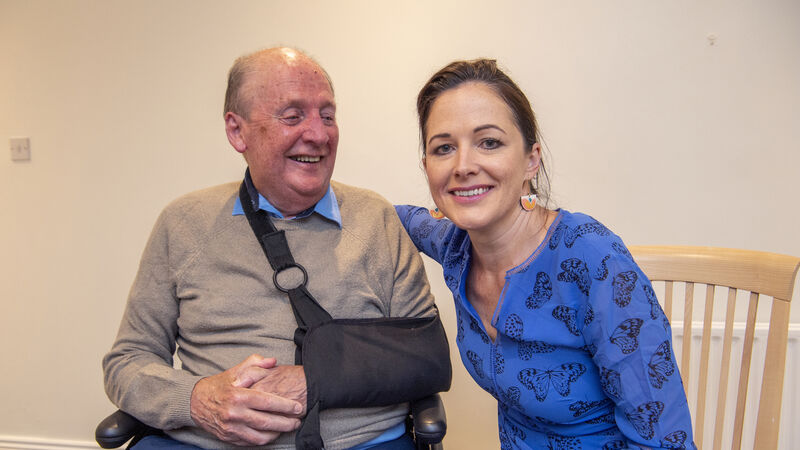What can be done to make care less gendered and more respected in Ireland?

Jennifer Horgan with her father Billy, who suffered a stroke three years ago. Picture: Dan Linehan
Who cares? Well, women, mostly.
As a child I’d often wake in the night with growing pains. My dad would get up and rub my legs until I could get back to sleep. He’d carry me on his shoulders on family holidays. In a lot of ways, for as long as I needed him to, he carried me. Later, he became my mum’s carer.








